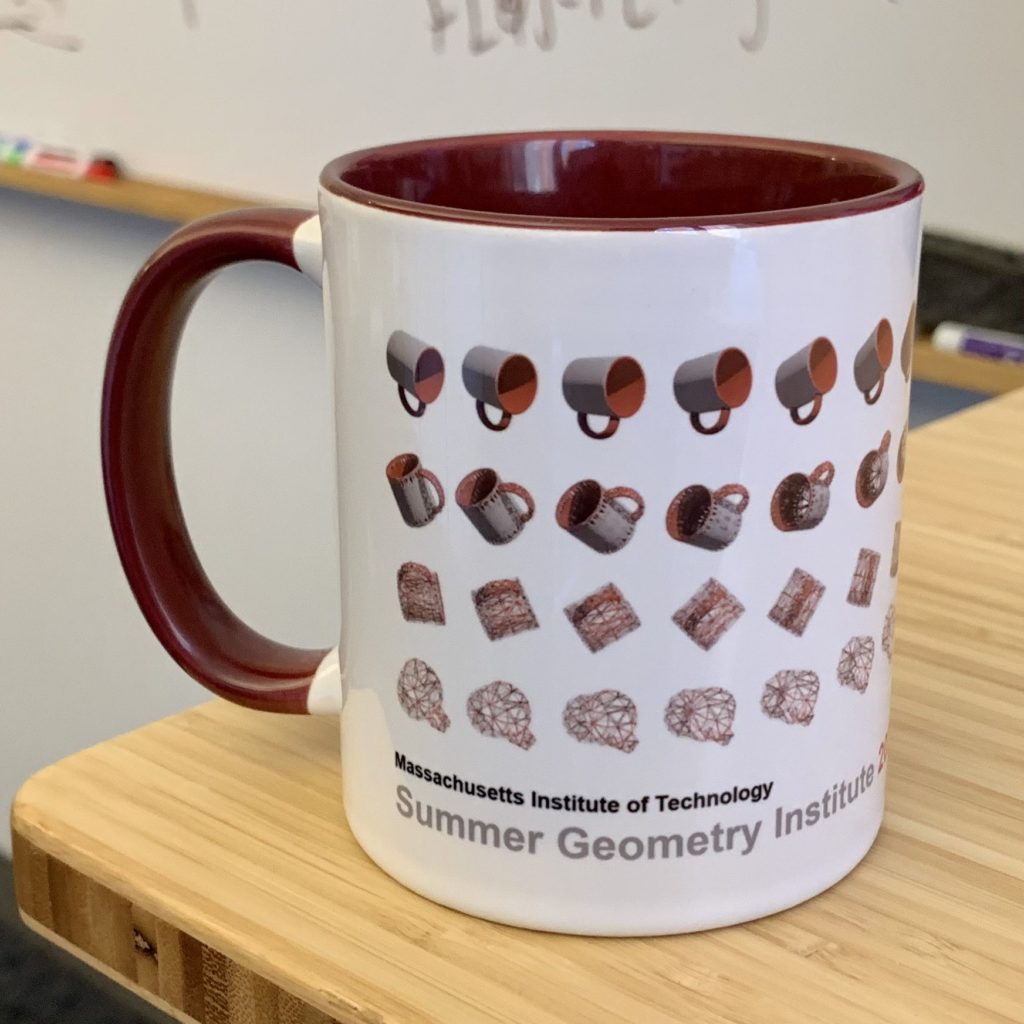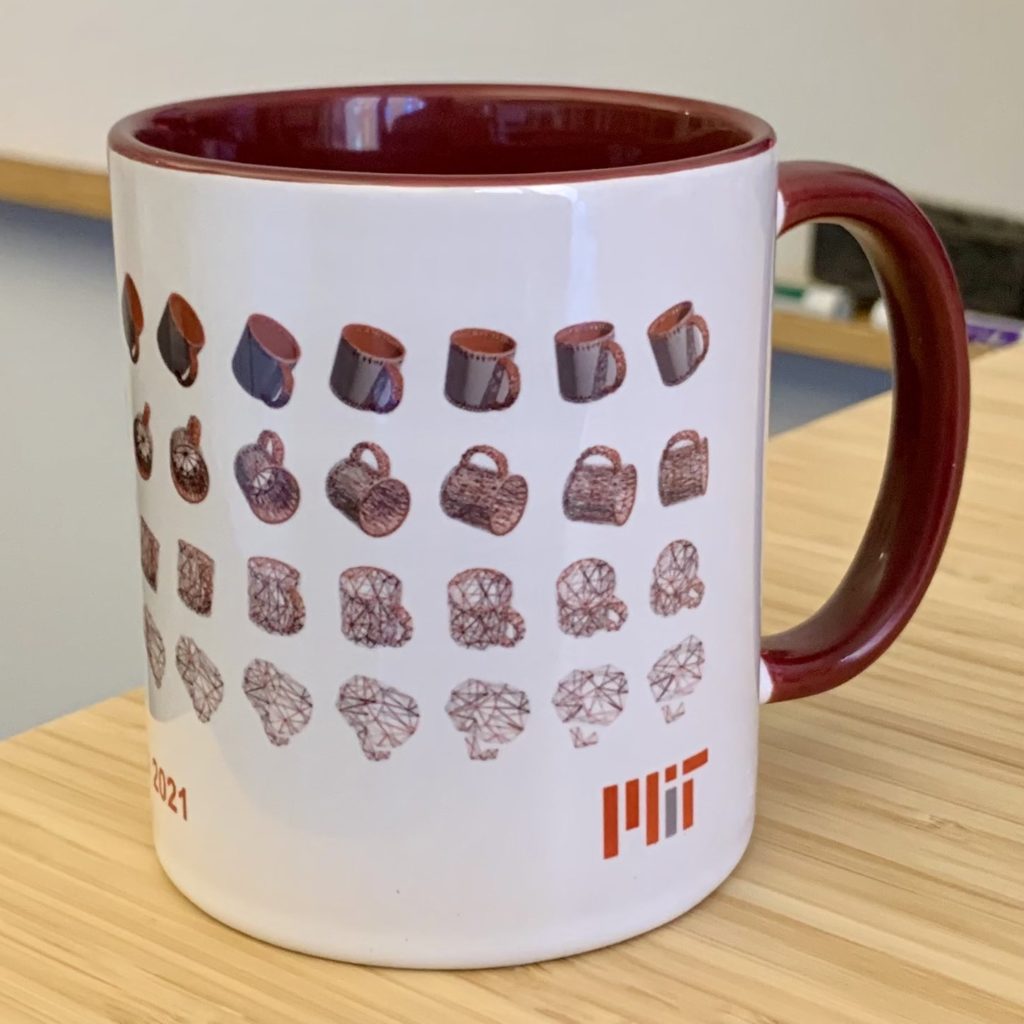Welcome to the official blog of the Summer Geometry Institute 2021, to be held July 19 to August 28, 2021. 🎉🎉🎉 I am writing this initial post to introduce our program and to share a few of our plans for this summer.
First, a quick introduction. I’m Justin Solomon, an associate professor of Electrical Engineering and Computer Science (EECS) at MIT and organizer of SGI 2021. I lead the MIT Geometric Data Processing group, which studies problems at the intersection of geometry, large-scale optimization, and applications in areas like graphics and machine learning.
SGI is the result of discussions among a worldwide network of geometry processing researchers, which started during the 2020 Symposium on Geometry Processing (SGP)—which, like many conferences in 2020, was held online for the first time. While we were sad not to see each other in person at a conference center in Utrecht, the online format format actually allowed SGP to reach a broader and more geographically diverse audience than ever before. This helped us realize that we should be creating similar opportunities for students and early-stage researchers to enter geometry processing research, even if they do not opportunities to try this discipline at their home institutions. This led us to design SGI, a summer research program designed to introduce a broad pool of students to geometry processing research through immersive interaction with top researchers in the discipline.
SGI aims to accomplish the following objectives:
- spark collaboration among students and researchers in geometry processing,
- launch inter-university research projects in geometry processing involving team members across broad levels of seniority (undergraduate, graduate, faculty, industrial researcher),
- introduce students to geometry processing research and development, and
- diversify the “pipeline” of students entering geometry processing research, in terms of gender, race, socioeconomic background, and home institution.
In addition to its research goals, SGI aims to address a number of challenges and inequities in the geometry processing discipline. Not all universities host faculty whose work touches on this emerging discipline, reducing the cohort of students exposed to this discipline during their undergraduate careers. Moreover, as with many engineering and mathematical fields, geometry processing suffers from serious gender, racial, and socioeconomic imbalance.
So, we set to work to launch SGI by summer 2021. We obtained funding from a number of generous sponsors across industry and academia, listed here. Last January, we posted an application, and by the February 15 deadline we received 627 applications! A careful review process led us to narrow down to a cohort of 35 (paid) SGI Fellows, a brilliant, diverse, and enthusiastic group of early-stage researchers; we also invited a second cohort of students to participate in our initial week of geometry processing tutorials. We were blown away by the enthusiasm and breadth of backgrounds/stories we encountered among our applicants, and our group of Fellows includes participants across many time zones and educational institutions.
Now that SGI is approaching in just a few weeks, we’re digging into the details of organizing this large, decentralized program. We’ve set up a shared Slack environment, confirmed 15 guest speakers, and tested online videochat tools. A team of SGI Fellows led by our student Lucas designed a custom-printed coffee mug to be distributed to the SGI Fellows, mentors, and volunteers. Just last week, my graduate students, postdocs, and I packed 72 packages to be mailed around the world with these mugs, as well as other swag provided by our program sponsors for the Fellows.
SGI kicks off in roughly two weeks, and it will happen in two phases:
- In the first week, our Fellows (plus additional invited participants) will participate in tutorials led by a team of geometry processing experts, designed to introduce them to the big ideas and scientific techniques encountered in geometry processing research. Each day is led by a different researcher: Oded Stein (MIT), Silvia Sellán (U of Toronto), Hsueh-Ti (Derek) Liu (U of Toronto), Michal Edelstein (Technion), and Amir Vaxman (Utrecht University).
- In the remaining five weeks, the students participate in short-term research projects. Each project lasts 1-2 weeks and is led by a geometry processing expert. We have over 30 project mentors, who have proposed projects across a variety of applications, from machine learning on triangle meshes to discrete differential geometry to Bayesian inference. Each project is worked on intensively by 4-8 students, who interact day-to-day through digital environments, shared repositories, and so on. Our program will be interspersed with guest speakers from industry and research, as well as panel discussions on graduate school admissions, research techniques, and other topics.
On this blog, the SGI students and team members will share their progress. Our goal is to share technical insights gained by our student as well as progress of the program itself. We invite interested parties to subscribe, so they can receive day-to-day updates as we train the next generation of geometry processing experts!


